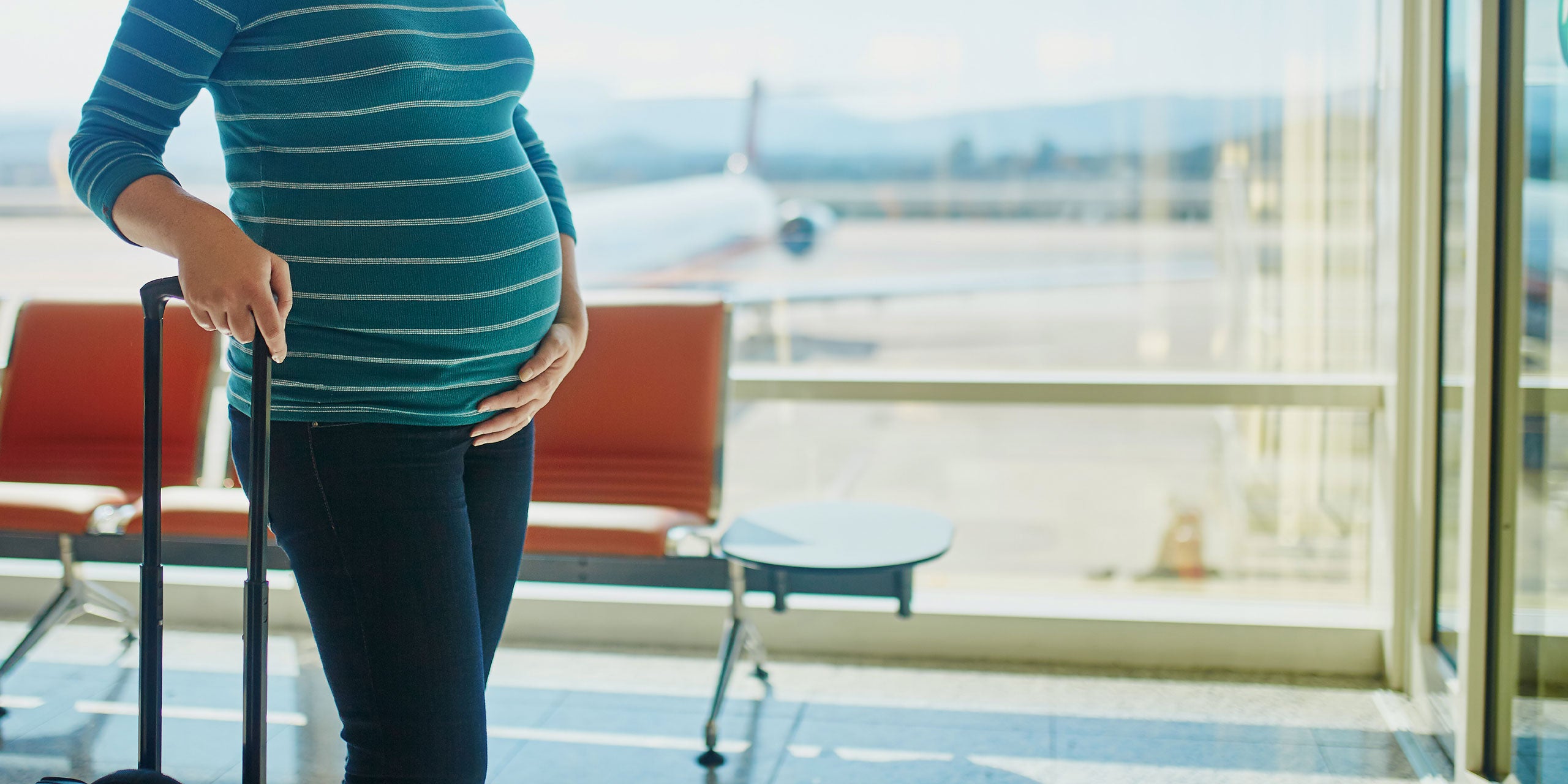My Cart(0)
The Do's and Don'ts of Traveling During Pregnancy

Introduction
The journey of pregnancy is a time of wonder and anticipation, but it also brings a series of considerations and adjustments to daily life – including travel plans. Whether you're embarking on a babymoon, attending a family event, or have work commitments, traveling during pregnancy can be manageable and enjoyable if approached with care. In this comprehensive guide, we'll explore the do's and don'ts of traveling during pregnancy, drawing from expert advice and reputable sources to help expectant mothers ensure a safe and comfortable journey.

Do's of Traveling During Pregnancy:
Consult Your Healthcare Provider: Before making any travel plans, it's crucial to consult your healthcare provider. Each pregnancy is unique, and your healthcare provider can offer personalised advice based on your medical history, the stage of your pregnancy, and any potential risks associated with travel.
Choose the Right Time: The second trimester (weeks 14 to 28) is often considered the safest and most comfortable time for travel. Morning sickness usually subsides, and the risk of miscarriage is lower. However, this can vary from person to person, so consult your healthcare provider to determine the best time for your trip.
Pack Smart: While packing, prioritise comfortable clothing and footwear. Bring maternity clothes that allow you to move freely and accommodate your changing body. Don't forget to include any prescribed medications, a copy of your prenatal medical records, and a list of emergency contacts.
Stay Hydrated and Snack Wisely: When traveling, staying hydrated is essential, especially during pregnancy. Carry a refillable water bottle and healthy snacks to keep your energy levels stable. Nausea and hunger can strike unexpectedly, so having small, nutritious snacks on hand is a good idea.
Move and Stretch Regularly: Prolonged periods of sitting – whether in a car, train, or plane – can lead to discomfort and swelling. Make it a point to move and stretch regularly. Simple exercises, like ankle circles and seated torso twists, can promote blood circulation and reduce the risk of blood clots.
Prioritise Rest: Adequate rest is crucial during pregnancy, so plan your itinerary with rest breaks in mind. Allow yourself time to rest, nap, or simply unwind. Listen to your body and avoid overexerting yourself.

Don'ts of Traveling During Pregnancy:
Neglect Safety Precautions: If you're traveling by car, always wear your seatbelt correctly – below your belly and across your hips. In the later stages of pregnancy, consider bringing along a cushion to provide extra support and comfort. Avoid situations that could expose you to unnecessary risks, such as extreme sports or activities with a risk of falling.Overexert Yourself: Traveling can be tiring, and pregnancy adds an extra layer of fatigue. Avoid overexertion by pacing yourself and not taking on too many activities in a short period. Rest is crucial to ensure the well-being of both you and your baby.
Ignore Warning Signs: It's important to recognise warning signs that something might be wrong. If you experience symptoms such as severe abdominal pain, vaginal bleeding, intense headaches, or a sudden increase in swelling, seek medical attention immediately.
Rely Solely on Air Travel: While air travel is generally considered safe during pregnancy, long flights can lead to discomfort due to reduced leg space and limited mobility. Additionally, changes in air pressure might affect your comfort. If you're flying, consider an aisle seat for easier access to the restroom and opportunities to stretch.
Neglect Hygiene and Nutrition: Maintaining proper hygiene and nutrition is crucial during pregnancy. Ensure that you have access to clean and safe drinking water and opt for cooked foods to reduce the risk of food borne illnesses.
Ignore Travel Restrictions: Check the travel restrictions and guidelines of your destination, especially if you're traveling internationally. Some countries have specific regulations regarding pregnant travellers, so it's important to be well-informed.
Conclusion
Traveling during pregnancy can be a rewarding experience if approached with careful planning, consideration, and a focus on safety and comfort. By following the do's and don'ts outlined in this guide, expectant mothers can make informed decisions that prioritise their well-being and the well-being of their babies. Remember that each pregnancy is unique, so it's essential to consult your healthcare provider before making any travel plans. With proper preparation and a mindful approach, you can embark on your journey with confidence, creating cherished memories as you embrace the adventure of traveling while pregnant.As you navigate the paths of new destinations, may your journey be filled with wonder, joy, and the anticipation of the beautiful moments that await you and your growing family.
unsubscribe at any time without costs.










